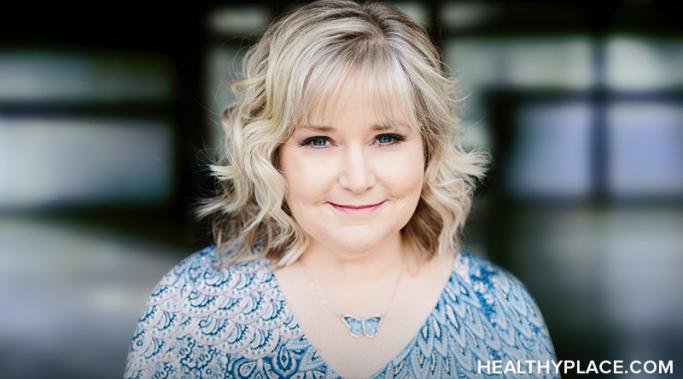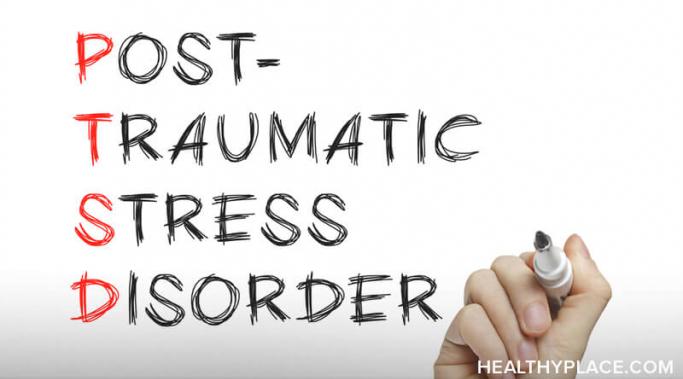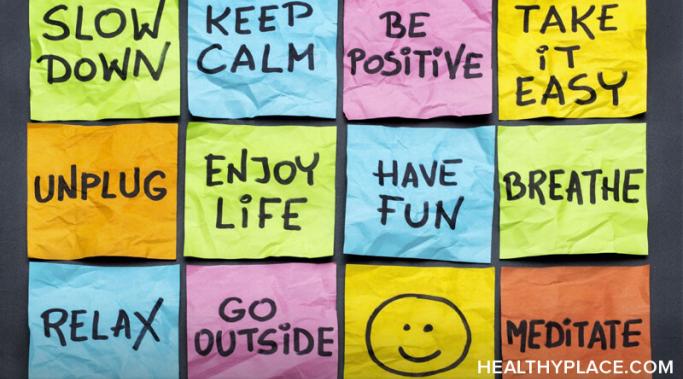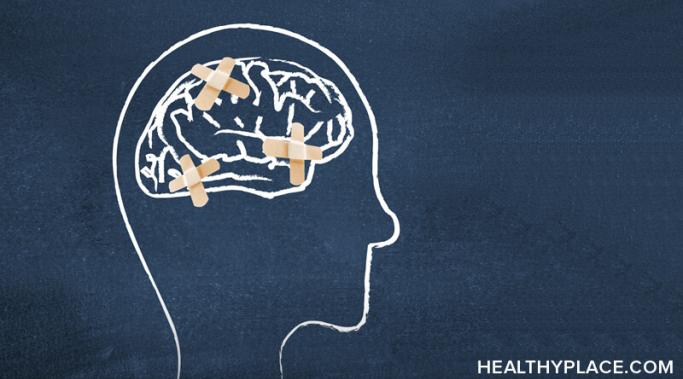To stay present in the here and now is one of the great challenges of posttraumatic stress disorder (PTSD). Flashbacks and triggers can pull you back to the past and a world that is no longer reality. With practice, however, you can train your brain to stay present instead of tormenting you with the past.
Trauma! A PTSD Blog
Posttraumatic stress disorder (PTSD) and suicidal ideation are linked, and I have to admit that this week I found myself reverting to thoughts of ending my life. When life gets overwhelming, as it has for me lately, it's so easy to slip into thinking that things would be much easier if I just didn't have to feel anymore. Out of the blue, my employers informed me, and the other nurse practitioners I work with, that we will be jobless in six weeks. We were all left in utter shock.
Tonight I was reminded that the emotional flashbacks of complex posttraumatic stress disorder (C-PTSD) are ever present in my life. I was sitting in bed snuggled up next to my golden retriever, Miles. I could hear my daughter in the living room singing to the songs playing through her earbuds. The louder she sang, the more I felt like I was about to come out of my skin. I just wanted to scream "Shut up." The thing is though, when I stopped to think about why her singing was flipping me out, I realized it wasn't about her singing at all. I was actually dealing with one the hallmarks of C-PTSD -- an emotional flashback.
Hi, my name is Traci Powell and I’m thrilled to be joining HealthyPlace as a writer for Trauma! A PTSD Blog. Posttraumatic stress disorder (PTSD) has taken me to the darkest pits of despair but has also helped me find a strength I didn’t know I had. I’ve discovered that through learning coping skills and understanding how trauma affects your brain and body, PTSD can be managed and even overcome.
Here's my self-care example: The time has come for me to honor my self-care and say farewell to Trauma! A PTSD Blog. It's an honor to write for HealthyPlace, and I will miss it. However, my posttraumatic stress disorder (PTSD) symptoms tend to flare-up when I place too many expectations on myself, and that is where I find myself today. So, I'll leave you with a healthy self-care example of honoring a need to cut back on obligations.
For those of us living with posttraumatic stress disorder (PTSD), setting boundaries is crucial. Crucial, but also difficult. Trauma survivors with PTSD are commonly plagued by feelings of guilt, shame, or worthlessness, which can make the idea of standing up and setting boundaries feel futile or terrifying. It gets especially difficult when people don't respect those PTSD-related boundaries, which is a pretty common experience. Boundaries are broken, forgotten, or ignored all the time. Having to set--and then later repeat--your personal boundaries is exhausting. Living with PTSD makes setting boundaries imperative.
Do you know how to explain posttraumatic stress disorder (PTSD) experiences to your doctor? If you have difficulty speaking with your primary care provider about your PTSD, here are some ideas to help you explain how PTSD impacts you. Many people assume that primary care providers have experience working with individuals with PTSD, but often, primary care providers have a general knowledge of PTSD without any concrete understanding of how it impacts the daily life and health of their patients. This lack of knowledge is especially problematic when someone with PTSD avoids discussing his or her mental health with his or her medical provider. It is important to learn how to explain PTSD and its impact on your life to your doctor.
There are some false assumptions about posttraumatic stress disorder (PTSD) that people continue to make, and they make me want to hand out informational brochures on PTSD myths. Especially bothersome are the misconceptions rooted in PTSD stigma. Let's take a look at some of the more common examples of false assumptions about PTSD.
As an individual with complex posttraumatic stress disorder (PTSD) and resulting low self-esteem, I can spend an exhaustive amount of time worrying about how others perceive me. Even though these worries are not the most rational when held up for inspection, they are so automatic that sometimes they slip right out before I have time to think about them. Here are some examples of how my low-self esteem manifests itself and what helps me fight the negativity, warped self-confidence and low self-esteem caused by my PTSD.









